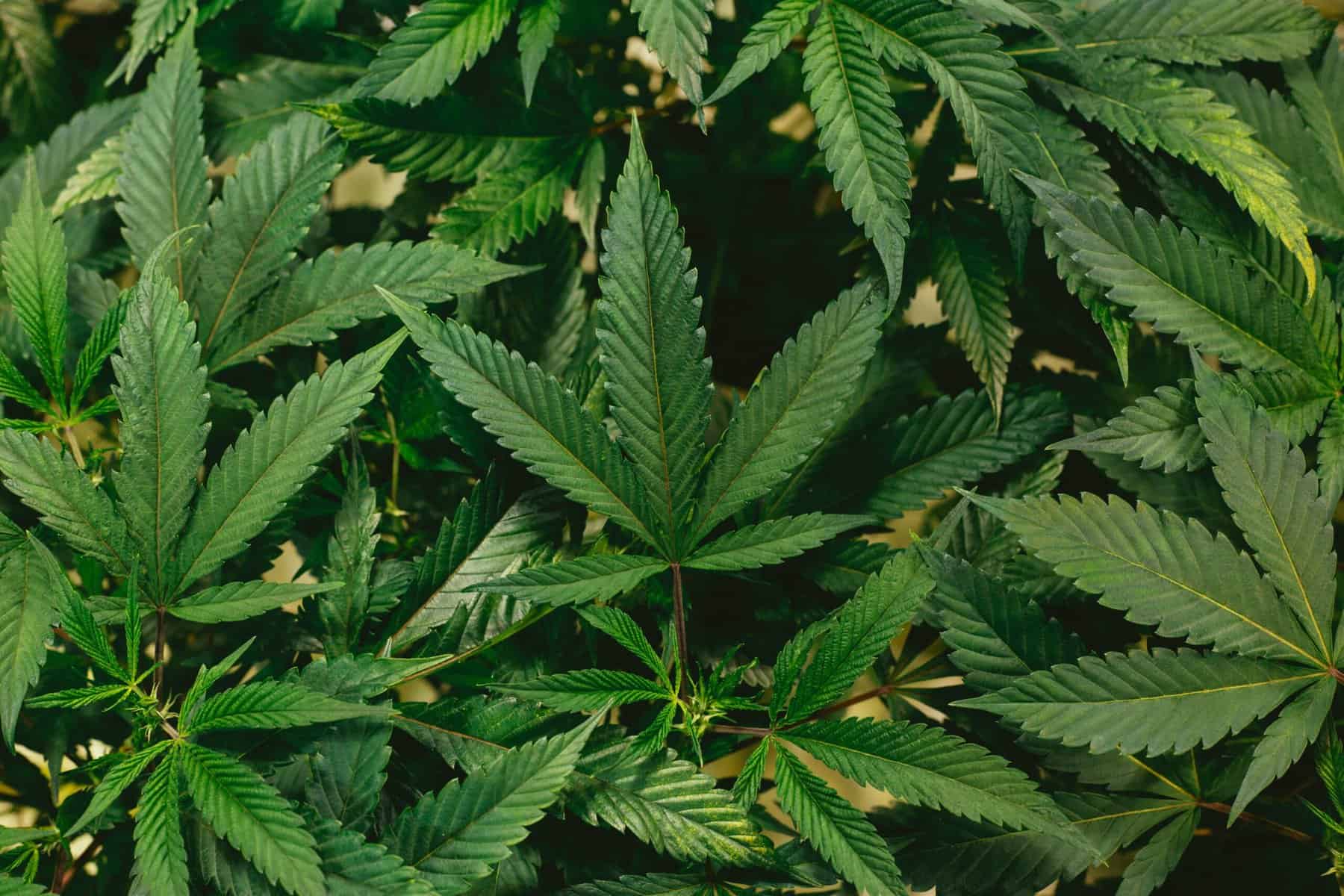Regardless of what side of the issue you come down on, the legalization of marijuana within the next two years is a strong possibility. Twenty states, including the District of Columbia, have enacted laws that allow people to use medical marijuana. Colorado and Washington have legalized the drug for recreational use. While still illegal under federal law, the Justice Department said it will not challenge states’ marijuana laws as long as they do not run counter to certain federal enforcement, such as selling pot to minors.

Marijuana use has become a passionate subject, with strong advocates on both sides of medical and casual use of the drug. Parents find it difficult to know what to think, and that leaves young people debating what information is reliable and sorting through what remains from the lore of past generations.
Marijuana has political, social, medical, and moral implications. The purpose of the following information is to help inform Christians and assist them in making the best possible decisions while remaining true to their faith convictions.
Is marijuana just a harmless plant?
There’s a reason why heavy users of marijuana, especially teenagers, are labeled potheads and stoners. With the use of a Magnetic Resonance Imaging Device (MRI), doctors are able to identify visible changes in the brain’s information highways after ingestion of the drug. THC clogs receptors acting as switching stations, resulting in memory reduction, slowed reaction time, loss of motivation, and reduced peripheral vision. In short, the brain is temporarily incapacitated.
Is marijuana addictive?
For years, many advocates of marijuana use argued that it was not addictive—that is, until research uncovered the relationship between the use of cannabis and drugs already manufactured by the brain. Serotonin, a chemical released by the brain that provides feelings of pleasure, well-being, and contentment, is one of those natural substances. THC, the active component in marijuana that leads to feelings of euphoria, mimics Serotonin. The brain, sensing an overload, shuts down its production of the chemical, even after the effects of marijuana are gone. When it is absent from the body, marijuana users begin to feel irritable, depressed, anxious, and may have trouble sleeping, all of which make it difficult to quit.
Is marijuana a “gateway drug”?
At one time possession of marijuana in any form or amount was a felony. It was often the first step towards to the use of harder drugs like heroin and cocaine.
One often hears the term “addictive personality” tossed about today, usually by counselors in drug treatment facilities. The definition varies, but primarily refers to any behavior that leads to compulsive use of a substance or participating in an activity that has a negative effect. It can mean someone has a genetic predisposition to addiction, such as to alcohol, or it can mean destructive behaviors like gambling, overeating, pornography use.
Science has yet to provide a method of predicting who will become addicted to a behavior or substance. At best, substance abuse counselors can review existing behavior and make an educated guess as to one’s likelihood of future compulsive behavior.
What we do know is that the amount of marijuana use in this country is high and on the rise. According to the US Department of Health and Human Services, 2.4 million persons aged 12 and older used marijuana for the first time in 2012. That translates into an average of 6,600 new users each day. Clearly, the stigma attached to marijuana use is fading, probably due to greater acceptance of the drug’s medical application.
It should be clear that there is no substantive evidence that the numbers of those graduating to harder drugs are keeping pace with the increase in marijuana use. Nevertheless, drug use is hazardous by definition. A key component in measuring risk is the presence of an ever-increasing need to achieve a greater high. The need for a stronger drug, or a new drug, is disturbing and signals the need for great caution.
Does marijuana affect teenagers differently than adults?
Northwest University researchers analyzed the relationship between casual use and brain changes and found that users under age 25 who smoked the drug no more than once or twice a week showed significant abnormalities in two important brain structures. The study findings, published by Dr. Hans Breiter in the Journal of Neuroscience, are similar to those of past research linking chronic, long-term use. Breiter said he was inspired to look at the effects of recreational use after previous findings showed that heavy cannabis use caused brain abnormalities similar to those observed in patients with schizophrenia.
“We need to see what happens longitudinally,” Breiter said, “What happens as you follow people over time? What happens if they stop using—do these bad effects continue? What happens if you can intervene early? My worry is we haven’t studied this compound and here we are looking to change legislation on it.”
Staci Gruber, an associate professor of psychiatry at Harvard Medical School, who was not involved in the research, said Breiter’s findings are consistent with her own, although she has focused on somewhat heavier users.
“There have been a growing number of studies that suggest that marijuana use in emerging adults is associated with differences in brain structure and cognitive abilities,” said Gruber, also the director of Cognitive and Clinical Neuroimaging Core at McLean Hospital outside Boston. “I’m not saying [pot smoking] is analogous to shooting heroin or cocaine, but it’s also not quite the benign substance people thought it was.”
In 2012, clinical psychologist Madeline Meier of Duke University and her colleagues examined data from 1,037 New Zealanders. They found that people who began smoking marijuana heavily in their teens lost an average of eight points in IQ between the ages of 13 and 38. The study further indicated that the lost cognitive abilities were permanently lost, even for those who quit smoking marijuana as adults. Conversely, those who never smoked pot had an average increase of one IQ point by the same age.
Will legalization reduce violent crime?
Al Capone and his crew did not become model citizens after the repeal of Prohibition—and neither will drug dealers. We often hear that criminal behavior will stop if the government just gets out of the way, legalizing a drug. Clearly, this is faulty reasoning.
First, age limits restrict who can legally purchase marijuana. Customers must be at least 21 years of age and cannot buy more than an ounce at a time. Minors will continue to seek out drug dealers, many of whom are violent gangbangers who dominate the trade. Gangs will still use violence as a means of competing for territory and a larger share of the market, not to mention the occasional homicide from a drug deal gone wrong.
Alcohol abuse is closely tied to violent crime. Statistics obtained from the Department of Justice show that 40 percent of convicted murderers were under the influence of alcohol at the time they committed their crime.
If we rely on those numbers alone, it is conceivable that violent crime could actually decrease if marijuana replaced alcohol as a drug of choice. But given the availability of marijuana that already exists, no evidence suggests a change in violent behavior.
Is marijuana an all-cash business?
Pot production is a booming business, but manufacturers can’t get a bank to touch their money. Selling marijuana is still on the books as a federal crime, and although Attorney General Eric Holder distributed a memo stating that the current administration will not prosecute in states where it is legal, bankers remain skeptical.
Guidance from the Department of Justice and the Department of Treasury did not change the fact that any bank that supports illegal activity risks prosecution. Until the federal government amends the classification of marijuana as a Schedule 1 drug, meaning it has no acceptable medical use, things are unlikely to change.
An all-cash industry is an invitation to a long list of criminal activity. Criminals frequently skim money off the top, never reporting it to the federal government. One of the more attractive characteristics of a business run solely on cash is the ease with which criminals use it to launder profits generated from other ill-gotten means. Finally, undocumented cash profits are the means by which criminals launch and support organized crime. Terrorism, the illegal drug trade, and arms trafficking are just a few of the crimes that depend on “invisible” and untraceable dollars that allow them to operate under the radar of law enforcement.
In short, any cash business is a bad idea.
Will legalization help ease the strain on our nation’s overpopulated jails?
The prison population in the United States is comprised of professional criminals; meaning, they are professionals who make their living through extralegal activities. Criminality is a complex social issue with few solutions. Sociologists refer to “criminal thinking” as the way law breakers justify everything from minor misconduct to committing a serious felony.
No one is sentenced to prison for casual use of marijuana. An ounce or less of grass is classified as a misdemeanor and many states do no more than write the arrestee a citation—not the same as a traffic ticket—in which he promises to show up for court.
Undercover police officers will continue to make arrests for hand-to-hand sales as long as criminals continue to sell drugs on street corners. But without the recovery of a large amount of narcotics, most violators are sentenced to probation or incarceration at the county level.
Generally speaking, the legal system reserves its prison space for traffickers who deal in large quantities of drugs or those with a string of convictions. Nonetheless, the Obama Administration is pushing towards the commutation of drug dealers with no violent criminal history that have served at least 10 years of their sentence. This may free up some space, but comparing drug dealers, who are often violent, to violators who possess small amounts of marijuana is like equating bank robbers to shoplifters. It remains to be seen just how many of these offenders will eventually be connected to crimes not yet committed.
Can medical marijuana help treat glaucoma, multiple sclerosis, and arthritis?
Studies clearly show that medical marijuana can impact the symptoms associated with a number of diseases. But a better patient-to-doctor question is: “Does marijuana do a better job than existing legal medications?” In most cases, the answer is no.
According to the National Eye Institute (NEI), marijuana reduces the intraocular pressure (IOP) necessary to reduce pain in the treatment of Glaucoma, but only for about three or four hours.
The American Academy of Neurology reviewed more than 40 years of research on alternative treatments for Multiple Sclerosis (MS). While moderate evidence indicated that medicinal marijuana could ease MS patients’ pain, frequent urination, and muscle rigidity known as spasticity, not enough evidence showed whether smoking marijuana is helpful enough, especially given some of the serious side effects associated with medical marijuana, such as dizziness, thinking and memory problems, and depression.
A recent review published in Arthritis Care & Research did not support the use of marijuana for treatment of pain from rheumatoid arthritis, stating that evidence supporting claims of significant pain reduction is insufficient.
Many doctors refuse to prescribe marijuana because it proves no better than existing medications. At the very least, they argue, more research is needed. The drug industry makes a great deal of money from the promotion of medicines. Certainly, any legalized form of medical marijuana will result in a bumper crop of new millionaires. As with any drug, it is not wise to accept undocumented claims of success without sufficient supporting evidence.
What about medical marijuana for the treatment of seizure disorders?
One of the true bright lights of medicinal marijuana lies in the treatment of seizures and head injuries. The most publicized patient to date is Charlotte Figi, a young child who suffers from severe myoclonic epilepsy of infancy (SMEI), a condition caused by a gene mutation. It is not unusual for victims of SMEL to suffer up to 300 seizures a day. The condition is so severe that many parents sign “Do Not Resuscitate” orders on their child’s behalf.
In a CNN documentary, Charlotte’s parents tell of trying every available treatment before resorting to medical marijuana. Even then, her mother had reservations. But faced with no other options, they sought out two Colorado physicians who prescribed an olive oil solution low in THC (which gets people stoned) and high in CBD (the substance that treats seizures). The outcome was nothing less than dramatic, reducing Charlotte’s seizures to two or three per month.
On April 24 of this year, the Missouri State Legislature approved the use of certain marijuana components for treatment of seizures. With the title wave of favorable publicity other states are expected to enact similar laws.
Will legalization increase tax revenue and allow government regulation of the drug?
The production, distribution, and sale of marijuana are equal parts of an emerging industry, and entrepreneurs are standing in line, hoping to become rich. States like California are looking to find solutions to their ever-growing deficit problems, describing marijuana as the pot of gold at the end of the rainbow.
In Colorado, hopes were high that a windfall in revenue was only a pen stroke away. However, while the sale of various forms of the drug rapidly reached a dramatic peak, it just as quickly declined, leaving those in the business to question why.
One reason may be that Colorado places a 15 percent excise tax, a 10 percent special sales tax, and a 2.9 percent sales tax on recreational marijuana, in addition to application and license fees. (It imposes just a 2.9 percent sales tax, as well as application on license fees, on medical marijuana.) This makes marijuana a very expensive product, and the over taxation may very well be driving customers back to the street.
Nevertheless, even conservative estimates project that the nationwide legalization will raise $4-10 billion annually. Some of that money will go towards building new schools and programs to fight drug abuse.
Is using marijuana a sin?
A quick Google search reveals just how expansive the debate is, even among Christians. And the latest research has made the issue even more complex and difficult to resolve.
Advocates of marijuana often compare it to alcohol, stating that it is less harmful. But alcohol can be calibrated and consumed in moderation. The intake of marijuana results in an immediate high. How high depends on the THC level. There is no gradual inebriation. The Bible is quite clear when addressing the subject of “drunkenness” and problems associated with intoxication. Unlike alcohol, marijuana is used exclusively for its intoxicating effects.
Stewardship of creation—and that includes our bodies, as temples of the Holy Spirit—is a clear command from the Lord. All Christians need to examine what the Bible says about intoxication, whether brought about by alcohol or any other drug. Avoiding the adversities and challenges of life by numbing is a sin that leads to tragic consequences in our relationships with others and with God. God offers us the comfort we need, and God’s grace is sufficient.
Regardless of the legal, political, and economic implications, Christians have an ethical obligation to honor the Creator by keeping their bodies healthy, their thinking clear, and their actions sober. Legalization, while not irrelevant, is not the overriding factor in this debate. Christians are accountable both for their conduct and the example they set for others. We cannot afford to take that responsibility lightly.
Roger Dowis was with the Los Angeles Police Department as a lieutenant for 25 years and as an investigator with the MO Attorney General’s Office for two years.


